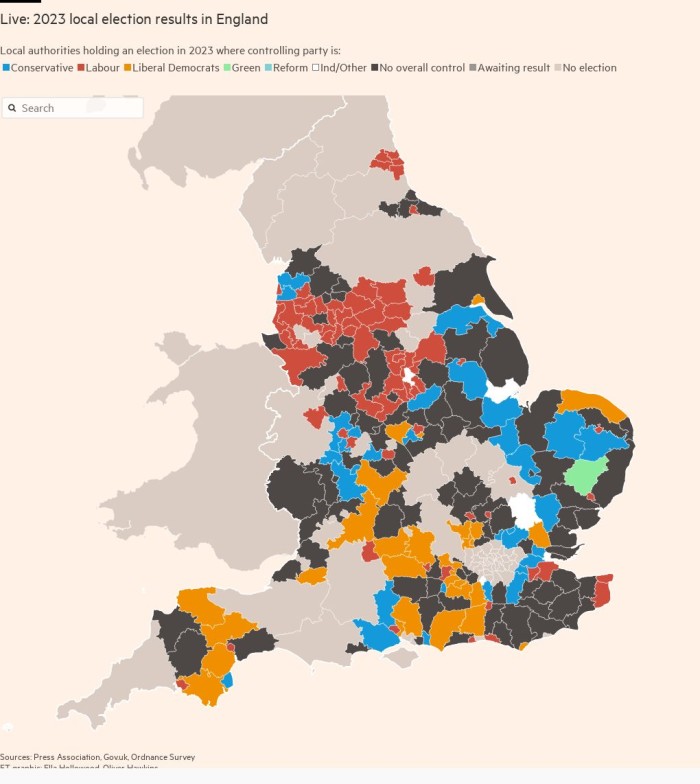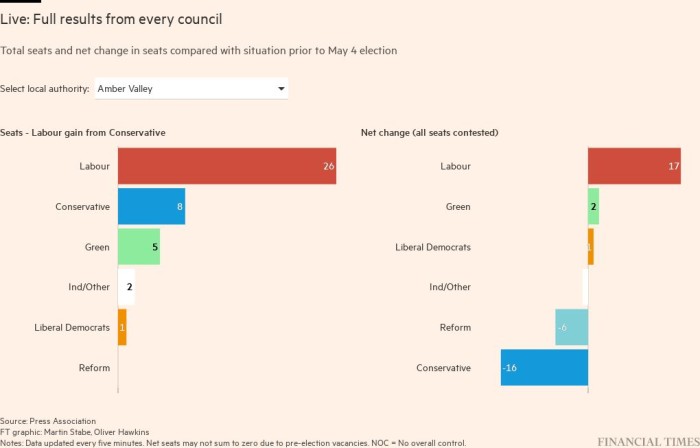The UK’s opposition Labour and Liberal Democrat parties expressed optimism early on Friday that they were making significant gains as votes began to be counted after local elections in many parts of England.
Both parties argued that their performances positioned them well for the forthcoming nationwide general election.
Labour’s shadow health secretary, Wes Streeting, told the BBC it had been a “great campaign” for his party in the elections, in which more than 8,000 seats in 230 council areas are at stake.
The Liberal Democrats’ Sarah Olney, meanwhile, said the results sent a strong message about her party’s future.
“People will take another look at the Liberal Democrats,” Olney said.
The Conservative party, in charge at the national level in Westminster, accepted they faced significant losses.
“This will be a tough night for the Conservatives,” the party said. “Any government which has been in power for 13 years is highly likely to lose seats.”
The first authority to change hands was Brentwood in Essex, which went from having a Conservative council to no overall control.
Shortly afterwards, the party also saw it lose Tamworth council in Staffordshire to no overall control.
Among the seats declared by 2am, Labour had recorded a net gain of 15 compared with its position before the most recent elections. The Liberal Democrats had gained nine seats by that measure and the Greens two. The Conservatives had lost 23 seats and the number of independent councillors had declined by three.
The local elections are likely to be the last big test of public opinion at the ballot box before the general election, due by January 2025 at the latest but likely to take place several months earlier. Elections for the wards being polled on Thursday were last held in 2019, when the Conservatives under Theresa May and Labour under Jeremy Corbyn did poorly.
Opinion poll expert John Curtice has said Labour needs a double-digit vote-share lead in the elections to be sure of securing a parliamentary majority at the general election.
Labour is hoping to show it can defeat the Conservatives in the “red wall” of mainly working-class seats in northern England that Boris Johnson when prime minister captured for his Conservative party.
Labour figures on Friday morning were expressing optimism about the party’s prospects of regaining control of the council in Stoke-on-Trent, a red wall area where the Conservatives had held 22 of the council’s 44 seats.
Data and graphics by Oliver Hawkins, Ella Hollowood and Martin Stabe




